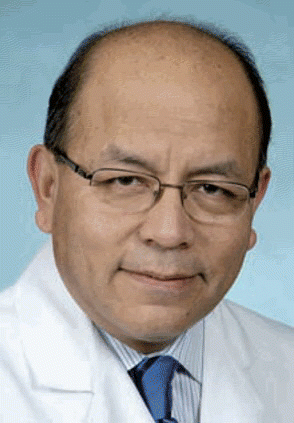Sources interviewed for this report emphasized that surgical intervention requires careful planning and execution. The scope of the operation may not be entirely clear preoperatively, said Dr. Eisele. For example, FNA biopsy may indicate that a parotid tumor is mostly likely malignant, but does not reveal the exact tissue type. A head and neck surgeon must be prepared, in that case, to manage the tumor intraoperatively. Important nearby structures, such as the facial nerve, may need to be sacrificed if the tumor has invaded the facial nerve or if the tumor cannot be surgically separated from the nerve. In addition, a primary nerve reconstruction, primary facial reanimation, or other reconstructive techniques may be required in an individual patient.
Explore This Issue
November 2008Surprises often develop in the OR, agreed Dr. Medina, and for that reason, he said bluntly, otolaryngologists should go in loaded for bear. In other words, If you suspect that the facial nerve may be involved, be ready and prepared to go as far as doing a mastoidectomy to expose the nerve. If you don’t do that kind of surgery routinely, have one of your otology colleagues who does this operation three or four times a week just stand by.
 If you suspect that the facial nerve may be involved, be ready and prepared to go as far as doing a mastoidectomy to expose the nerve. If you don’t do that kind of surgery routinely, have one of your otology colleagues who does this operation three or four times a week just stand by.
If you suspect that the facial nerve may be involved, be ready and prepared to go as far as doing a mastoidectomy to expose the nerve. If you don’t do that kind of surgery routinely, have one of your otology colleagues who does this operation three or four times a week just stand by.-Jesus E. Medina, MD
Treat Only at a Center?
Given the rarity of these neoplasms, the heterogeneity of tumors and cell types, and the multidisciplinary requirements of combined surgical and radiation therapy, does it make good sense for physicians to refer patients with suspected malignancies to tertiary centers? Dr. Schaitkin believes that the majority of parotidectomies can be accomplished by general otolaryngologists-head and neck surgeons. Parotid tumors are not uncommon, and many surgeons in the community do a lot of parotid tumor surgery. As long as otolaryngologists-head and neck surgeons are comfortable with their skills, they feel that they’ve adequately evaluated the patient, and it’s within their skill set, I think it’s okay.
Factors that might warrant referral to a tertiary center include large tumors, those that are suspicious for malignancy, or patients who need nerve grafts. According to Dr. Schaitkin, Surgeons should honestly assess their abilities and ask themselves, ‘Is this a patient to whom I can really offer everything they need?’ You don’t want to get yourself in the operating room and then decide that it was over your head. Doctors call me postoperatively with patients with facial paralysis and most of them wish they had not done that particular case.
Leave a Reply